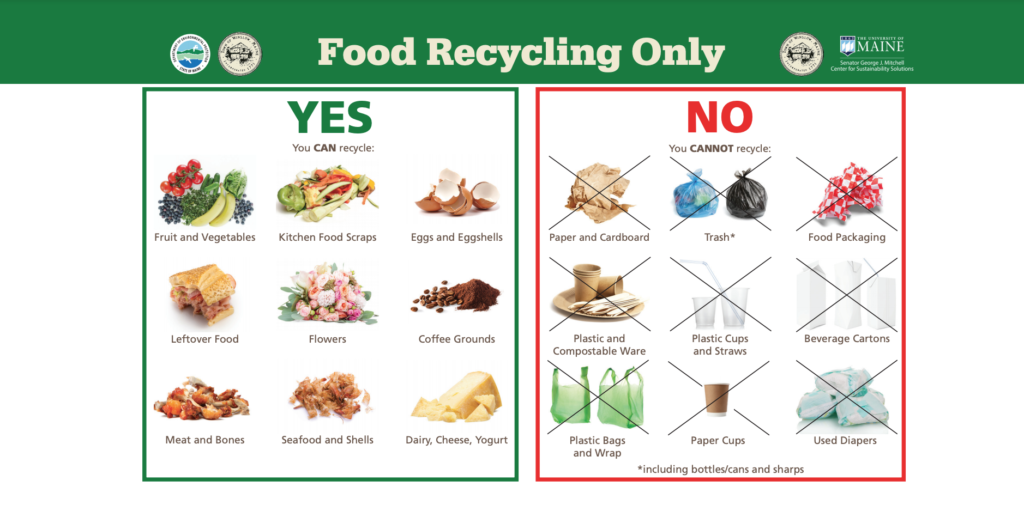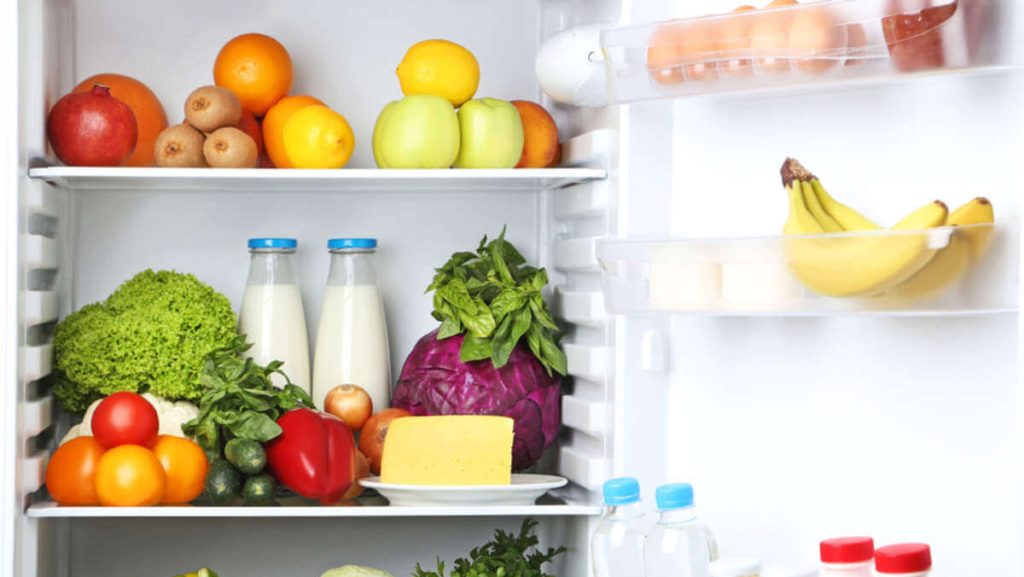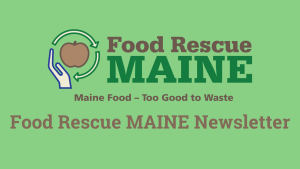Wasted Food Reduction at Home
Food Recycling – What Is It?
The Mitchell Center’s Maine Food Waste Solution focuses not only on food recycling, but on food recovery as a whole. In order to recover food effectively, we adhere to the food recovery hierarchy. The food recovery hierarchy is a process that allows us to use food at every stage of its life – first reduce unwanted food, then feed hungry people, then feed animals, then compost (food recycling), and finally dispose of non-compostable items in landfills.
Food recycling is the composting step of the food recovery hierarchy. Any leftover food scraps that are no longer edible to humans and animals are composted so that eventually the nutrients can be returned to the soil. This process mimics the cyclical manner of sustainability– compost helps crops to grow, crops become food for people and animals, leftover food is composted, and then the cycle can continue.
How to Recycle Food
- Put all food to discard in a container with a lid on the kitchen counter or in the freezer
- Empty your food container at a drop-off site
- Rinse your container and repeat!
Want to Begin Composting at Home?
Follow the following links from the Environmental Protection Agency (EPA) for some guidelines!

Maine Food Recovery Hierarchy
Reduce Unwanted Food
- Inventory grocery stock/pantry
- Buy and cook only what you need
- Conduct a wasted food audit
- Use leftovers
Feed Hungry People:
- Donate to food banks
- Partner with organizations that collect and distribute perishable food
Feed Animals
- Contact local farms to see if they can use the scraps
Compost or Convert to Fuel
Dispose

Wasted Food Reduction Techniques
Before even getting to the food recycling stage, there are many ways to reduce your wasted food with smart planning, shopping, and cooking techniques. Take some time to read a few of the articles below to find out how you can make sure that you are saving food- and money- with a few daily habits.
Recipes for Leftover Food and Food Scraps
- Saving Vegetable Scraps to Make Broth – Garlic & Zest
- A Recipe Book for your Leftovers- IKEA Food Scrapbook
- 38 Recipes to Clean Out Your Fridge – Delicious.
Meal Planning
- A Beginners Guide to Meal Planning – The Kitchn
- 6 Ways To Reduce Waste Through Savvy Meal Planning – The Kitchn
Proper Food Storage
- Keep Your Food Fresh As Long as Possible- FoodKeeper Safety and Storage Advice
- FoodKeeper Mobile App – FoodSafety.gov
Proper food shopping





